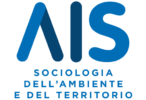Si segnala che alla conferenza ISA-RC21 il prossimo luglio ad Anversa Marianna d’Ovidio e Valentina Pacetti coordineranno una sessione incentrata sulla manifattura nella città contemporanea.
Di seguito la CALL FOR PAPERS
2020 annual conference of the International Sociological Association Research Committee 21 on Urban and Regional Development
‘Sensing and Shaping the City. Power, People, Place’
https://www.uantwerpen.be/en/conferences/rc21-sensing-the-city/
SESSION 13Manufacturing in the contemporary city
Session convenors Marianna d’Ovidio, Valentina Pacetti
(Università di Milano-Bicocca)
marianna.dovidio@unimib.it
valentina.pacetti@unimib.it
The
transition from industrial to so-called “post-industrial” economies has
deeply affected cities and the way they are sensed by citizens and city
users.
A long process of deindustrialisation has been shaping the
cities in the world following different patterns: the processes of
delocalization, fragmentations, tertiarization in old industrial regions
have been extensively studied. However, deindustrialisation has been
largely acknowledged as a global phenomenon as shown, for instance, by
the debate on premature deindustrialization.
In many regions,
factories have abandoned the urban space, often creating large urban
voids which have been representing both problems and opportunities for
cities, and which have been shaping the urban agenda for a long time
now.
Urban voids make deindustrialization clearly perceivable, but
even in the strongest of “post-industrial” evolutions, fragments of
manufacturing remain embedded in the urban thread. Moreover, along with
interesting cases of reshoring, new forms of manufacturing, based on new
digital technologies, have recently begun to emerge and are gradually
regaining the urban space.
The availability of tools like additive
manufacturing (3D printing), big data analytics and advanced algorithms,
Internet of Things (IoT) platforms, and, in general, digital
technologies, has created new possibilities for manufacturing and has
reshaped the relationship with the cities: while the old factories
challenged the cities with noise, smog and pollution, the new ones are
clean, small and noiseless. They are both sustainable and potentially
invisible. They are more integrated with cultural and service economies,
and often lead to an increasing blurring of sectoral boundaries. They
are embedded in the urban structure from an economic, social and
morphological point of view: urban manufacturing may involve craft
activities, industrial prototyping, art and design activities as well as
the so-called digital manufacturing. All address “urban” market niches
and use urban spaces in a new way.
Within the urban studies, the link
between the city and its productive plants has been largely
investigated in the past, when manufacturing production was a key
economic driver for the urban society; this session focuses on the field
of urban manufacturing within the contemporary “post-industrial”
society, a topic that the urban studies research has not discussed very
much. Not only is the empirical knowledge about it scarce (with notable
exception), but also the analytical categories used in the past are no
longer (or not always) useful to grasp the mechanisms at play (for
instance, the relation between manufacturing activities and local
employment rate is certainly different from the past).
In this
session, we want to collect both theoretical and empirical contributions
shedding light to the relation between manufacturing and the urban
space. We are interested in the different facets of such relation,
ranging from detailed descriptions of the phenomenon to theoretical
discussions aiming at providing analytical tools for exploring it. The
session will welcome papers discussing, for example (but not limited
to), the following topics:
What has changed: which manufacturing
activities have left the city? Which have stayed? Which are the new
ones? Why? What are the prospects for those who are located within the
urban landscape? What are the risks? What are the opportunities?
A
focus on the productive and organisational aspects of the urban
manufacturing: how “new” is the new urban manufacturing? Does it exploit
new technologies? New organisational structures? Or are they
“low-tech”, more traditional craft manufacturing industries?
The
relation with the urban environment: How do these firms connect with the
urban space? Do they integrate with it (acting also as agents of urban
requalification), or, conversely, do they represent, as often in the
past, an abrupt break in the urban tissue? How is urban manufacturing
sensed in the urban space? How much noise, smell, image of the factories
is perceived in the city?
How do cities (their governments, but also
any other institutions, lobbies, stakeholders, …) respond to the
changing industrial dynamics? Does the deindustrialisation narrative
inform local development strategies, or are local governments developing
specific policies in order to strengthen the urban manufacturing? What
kind of idea of urban manufacturing circulates within local policies?
Which
effects on the urban social structure does contemporary urban
manufacturing bring about? Is it reinforcing inequalities, does it
generate new ones? Or does it rather represent a tool able to reconnect
the working and middle classes with the urban society?
Submission of abstracts
If interested, please submit your abstract of max. 250 words through the conference website via the following weblink: https://www.uantwerpen.be/en/conferences/rc21-sensing-the-city/call-for-papers/submit-your-abstract/ (make sure to select session 13: “Manufacturing in the contemporary city”).
Please, send your abstract also via e-mail to the sessions organisers: marianna.dovidio@unimib.it and valentina.pacetti@unimib.it
Deadline for abstracts is 15 March 2020.
